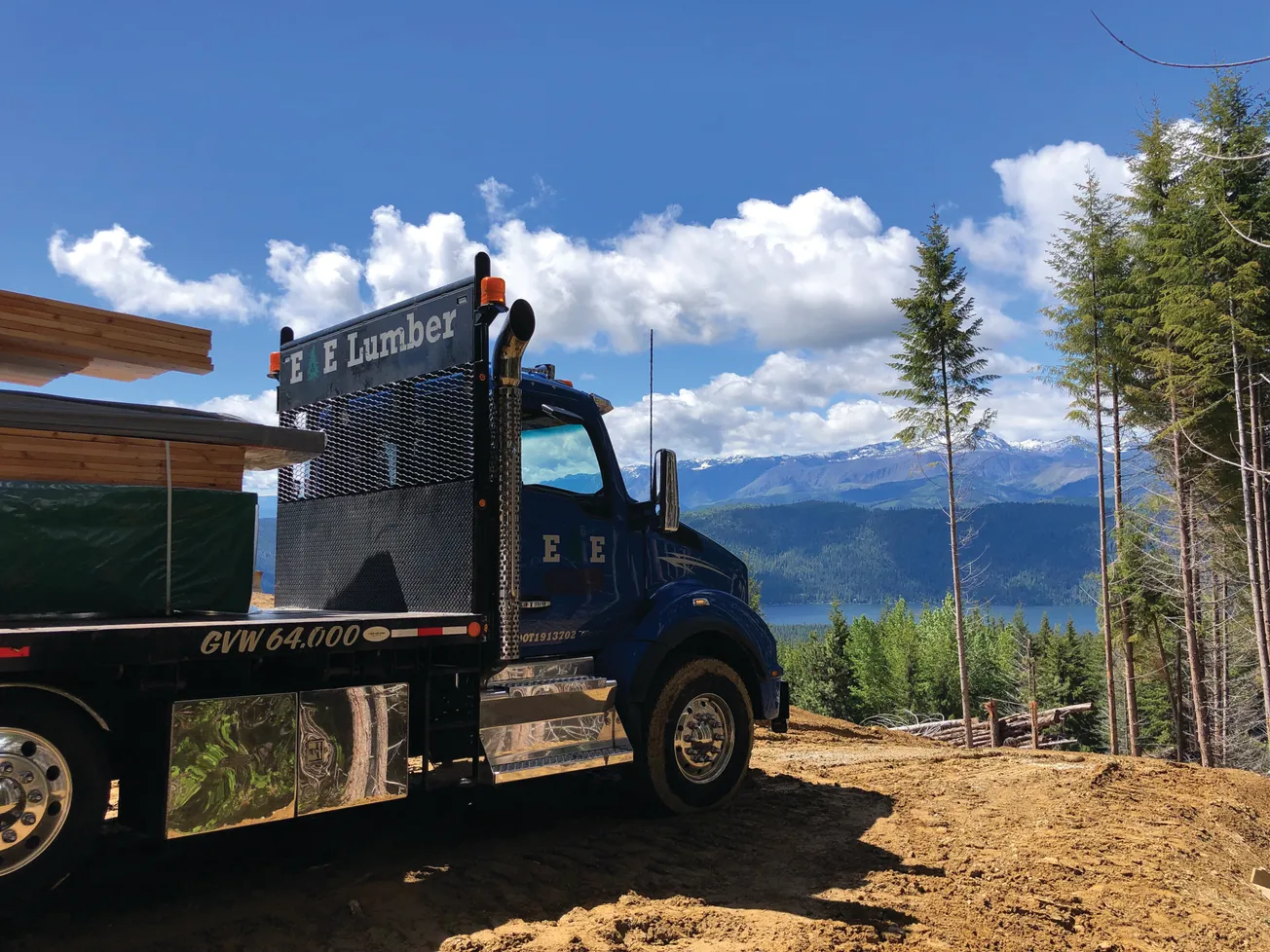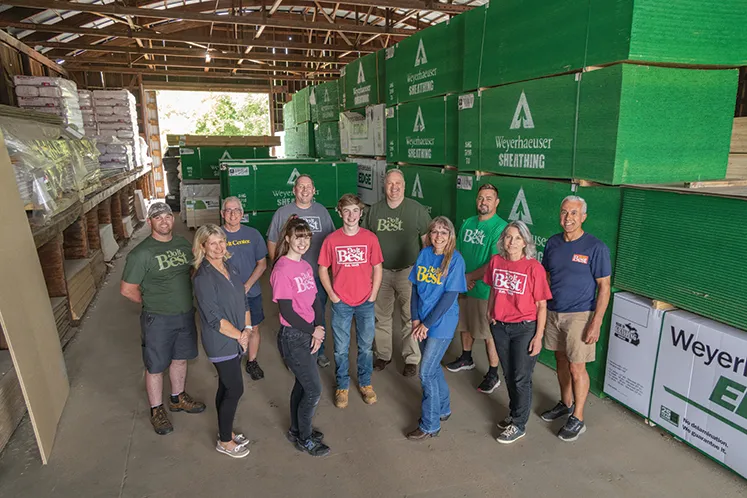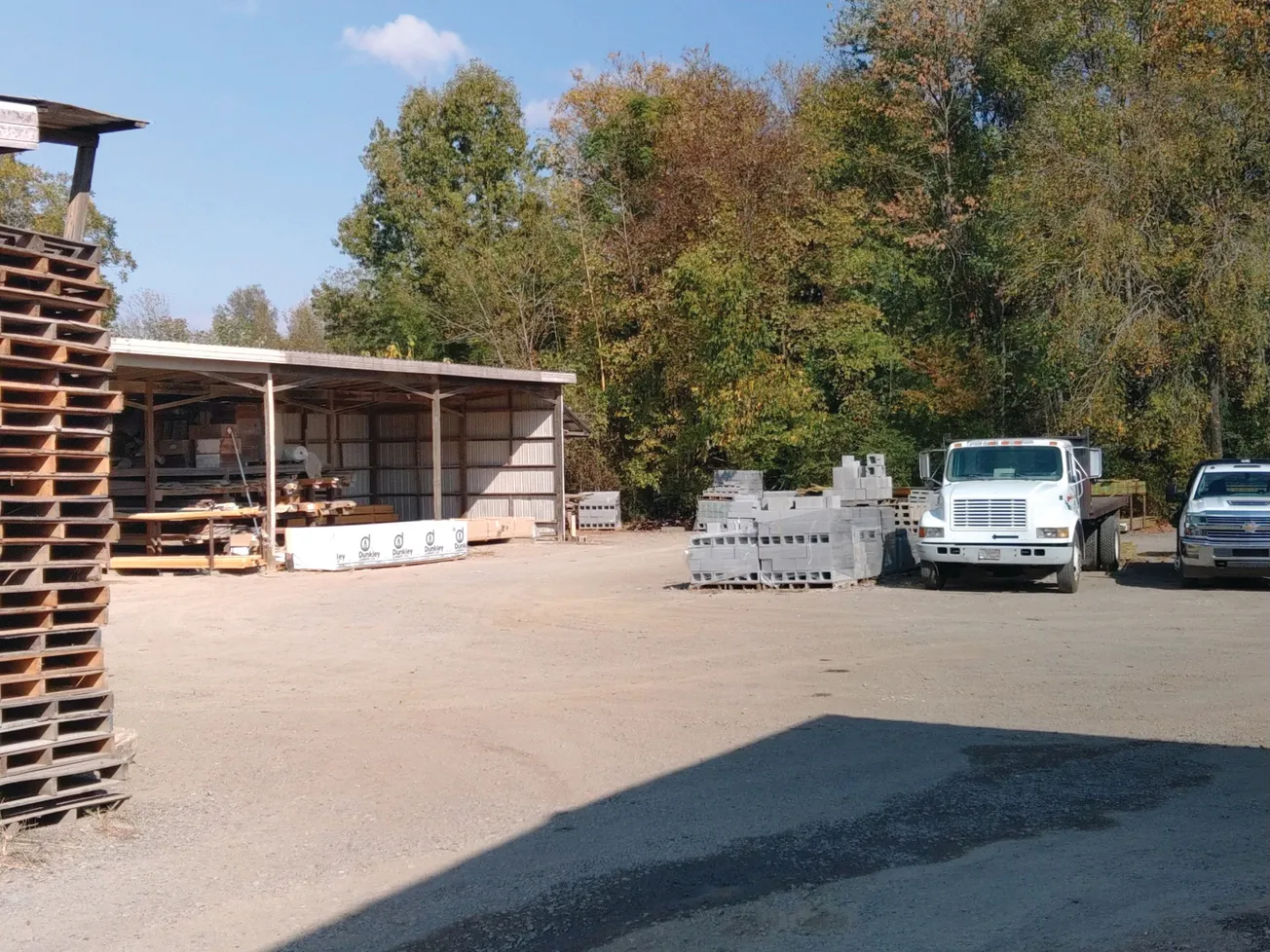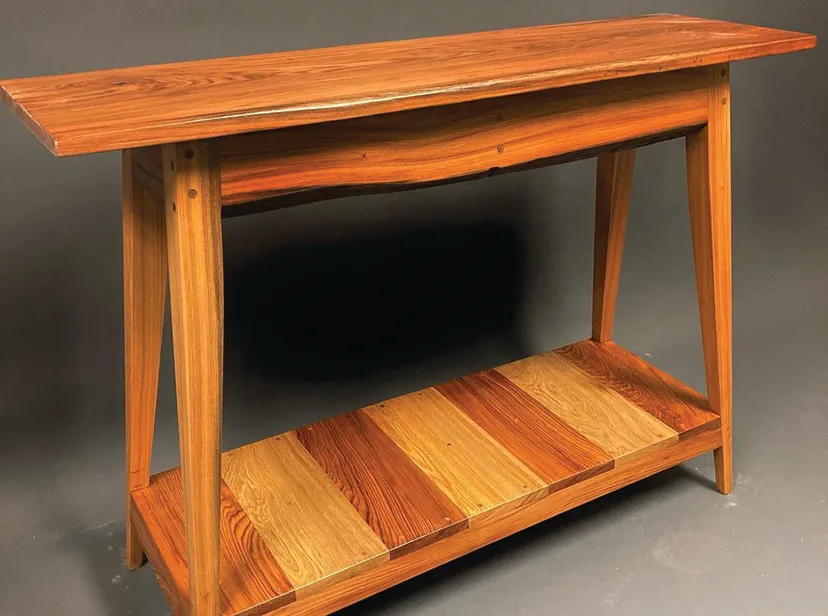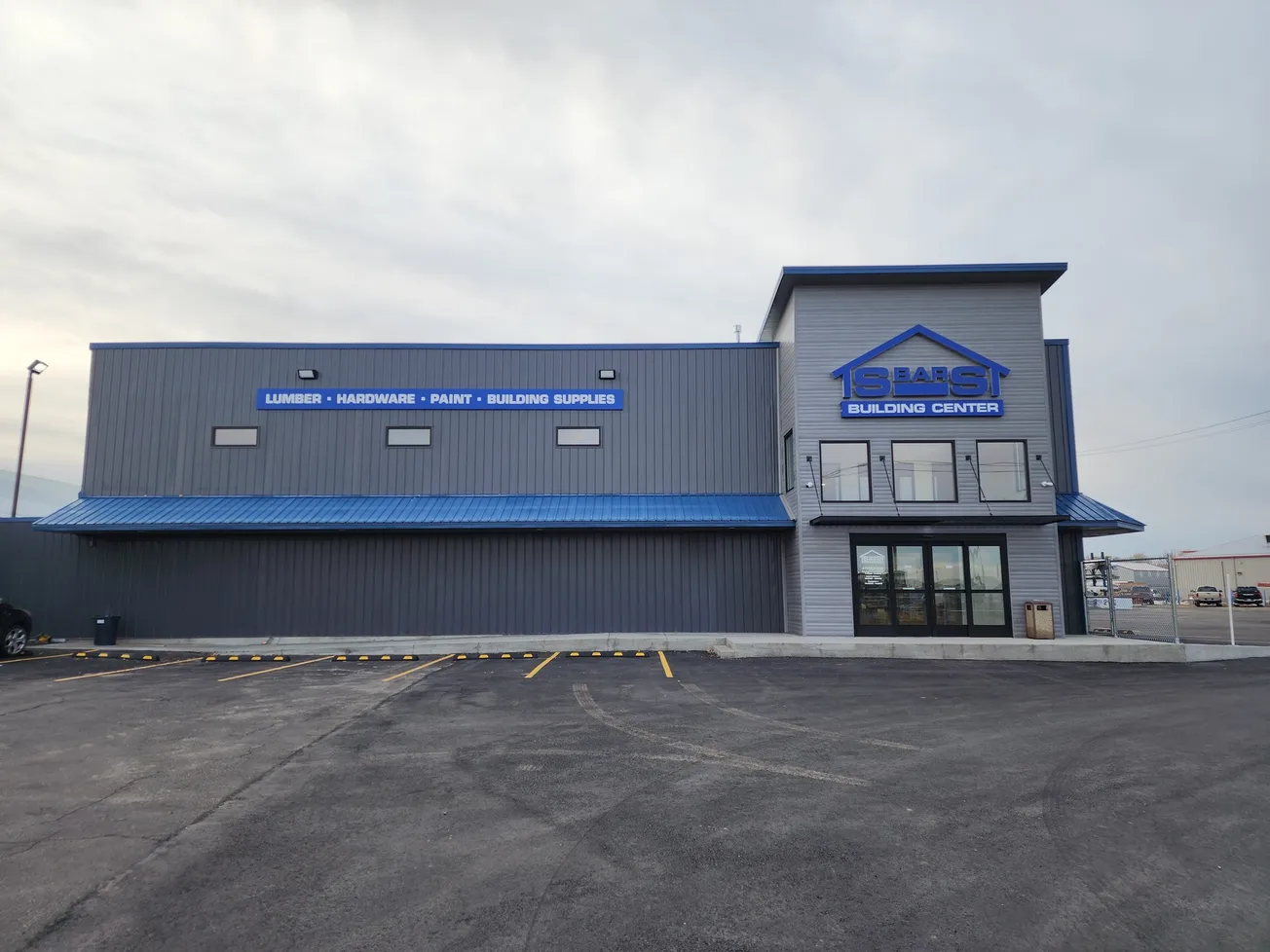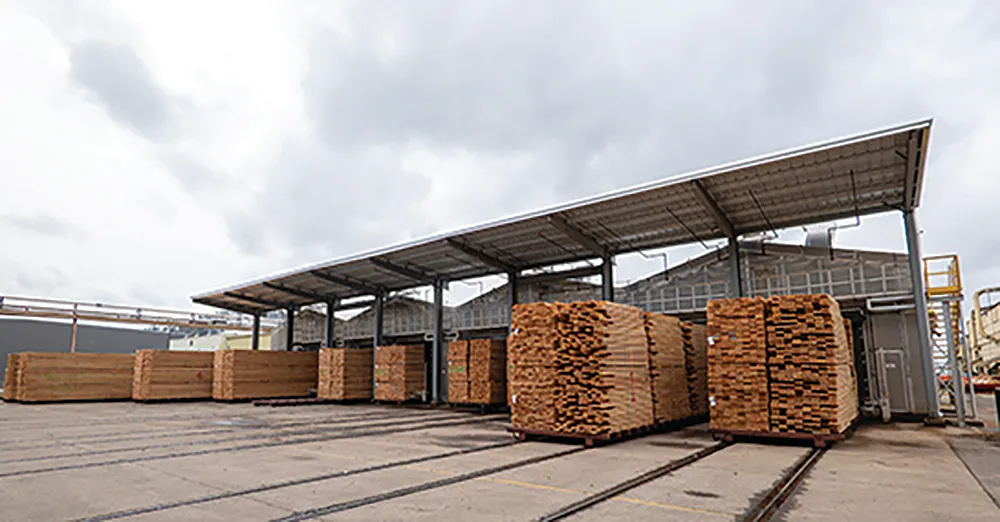Table of Contents
Open a map of Michigan, which looks like a mitten. Look harder and, nestled in the thumb, you’ll spot Marlette, pop. 8,000. It’s an agricultural community, where Ben’s Contractor Center serves as one-stop shopping for whatever’s going up—pole barns to new housing, add-ons to remodels—as it’s been doing since 1964.
That’s the year when namesake Ben, a butcher in a grocery store, purchased the hardware store next door, which sold guns and convenience lumber, recounts his grandson, Jimmy Zyrowski, today’s owner. “We added building materials in the early 2000s—a big decision,” Jimmy testifies.
“This is a small, rural community and there wasn’t a local source. People needed it. When my grandfather purchased the store, it sold guns. The community and the culture supported that, so it [sporting goods] continues to be a big part of what we are today. We sell guns and ammunition and supplies for archery, hunting, fishing and camping. Clothing. Lots of outdoor stuff. And sporting goods. “It helps draw people, and also our contactor base.
Pleasing the pros is built into the outfit’s DNA. “Our big thing,” Jimmy continues, “is asking what they want—then saying ‘yes’ and making it happen: moving from ‘yes’ to making things go smoothly for them. It’s not easy,” he knows all too well, “but it’s good for them: Figure out the problem of the day, find different avenues. Think outside the box.”
Nonetheless, “the last two years were unlike anything we’d ever dreamed of—disrupted in everything from pick-up to buying. But, by being more creative than the next guy, you make it happen.
Because of our location, we take care of everybody. Business is pretty evenly divided between walk-ins and contractors, so we carry a diverse mix to make that sustainable.”
Sure, Ben’s is the only building-supply act in town, but other nearby towns ensure lively competition. “We’re surrounded by the big boxes; we’ve got ’em all. It only makes us work harder to make things happen, to take charge of individual customers’ needs.” In order to earn repeat business, “we can’t leave problems unresolved. In a small community, everybody knows everybody”—and everybody talks.
And that’s actually Ben’s best marketing tool; referrals come by word of mouth. Of course, there’s also a website, “which we’ll improve in the future: See in which direction to go,” says Jimmy, who loves his job and links his own future (and perhaps that of his three kids) to the company’s continued success.
Jimmy started in early. “Like anybody in a family business, you’re signed on before you’re born,” he jokes. “My first job here was mowing grass.”
His job, ever since, has been marshaling Ben’s expansions. “We purchased the new location in 2012 when the owner of an existing yard was ready to retire. It was bigger, and strictly a lumberyard. It took us to the next level: more room, more trucks, more warehouses.
“But pretty soon we were pushing the walls again,” he recalls. “As we grew bigger, once again we needed more product, more trucks, more forklifts, more inventory.”
So it was time to grow—again. Ben’s grew its robust sporting department with a 13,000 sq. ft. expansion in 2020, adding badly-needed retail space. “We completed it in fall—just in time,” he laughs (or was that a groan?), “to do it all over again. This year we added yet-another 18,000 sq. ft. to extend all our categories—hardware, lumber, clothing.”
Adding more square feet and more products to fill them required more employees, too. Currently Jimmy oversees a staff of 77. Turnover is low, but a number of retirements is looming. “Finding new staff members is certainly a challenge. Many of our people already are commuting pretty long distances to work here,” Ben’s owner realizes.
Still, these employees continue to deliver first-class service, including “the fast and efficient, same-day delivery we pride ourselves on,” says Jimmy. “We also hold an annual sporting goods event, with vendors displaying product, demos and special sales. Plus a spring event that’s family-oriented—rock wall, sporting goods, and such.”
Altogether these growth tactics have helped Ben’s LBM category’s success, which posted an enviable 543% increase last year. What drove it?
“A little bit of everything,” he figures. “Our staff and our inventory. Plus, we stayed open during COVID. In our customers’ eyes not a lot changed, except we got bigger and better. It was definitely the most challenging time we’ve ever seen, when it comes to finding product and people: a lot of unknowns with COVID. How’s it going to hold up? We’re waiting for the carpet to be pulled out,” he laughs (at least, I think it was a laugh).
Finding supply is this season’s biggest headache. “It’s all about relationships, what product you get and how much of it. This is NOT the time to switch vendors!” Margins, he allows, are up and down. “Some days really good, then the next day you’re looking at a price drop and losing money.”
So, what does the future hold? “In January we’re doing a hardware re-set. In our new building, we’re incorporating a second entrance by the new parking lot. But in the big picture, we’ve all got to get the manufacturing side straightened out. Customers are getting burned out with long lead times, etc. It’s taking a toll. What used to take three days, now you call to check if they’re even making it. We’ve never had to work so hard: increasing our purchasing department, babysitting orders, double-checking everything, doing everything possible.”
Right. So, why do you hang in there, Jimmy? Why do you still love what you’re doing? “It’s exciting when a team of people share some idea to make our customers succeed. When they come up with ideas, it’s like, ‘Why haven’t we done this a long time ago?’ There’s input: Everybody brings a different perspective. It’s important to hear from customers, too: Get everybody involved.”
Bottom line: “The buck stops with me. If there’s a problem, it ends up on my desk”—which guarantees that boredom is a foreign concept here, and that’s just the way Jimmy likes it.


